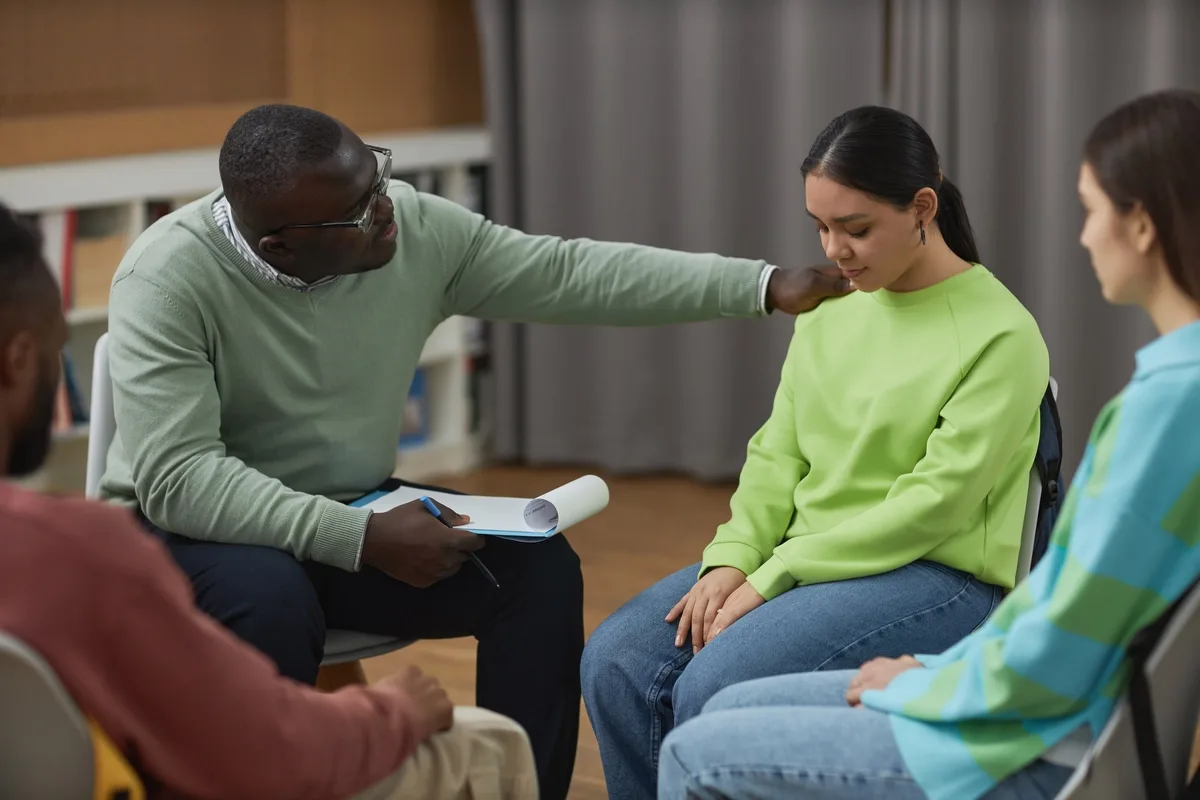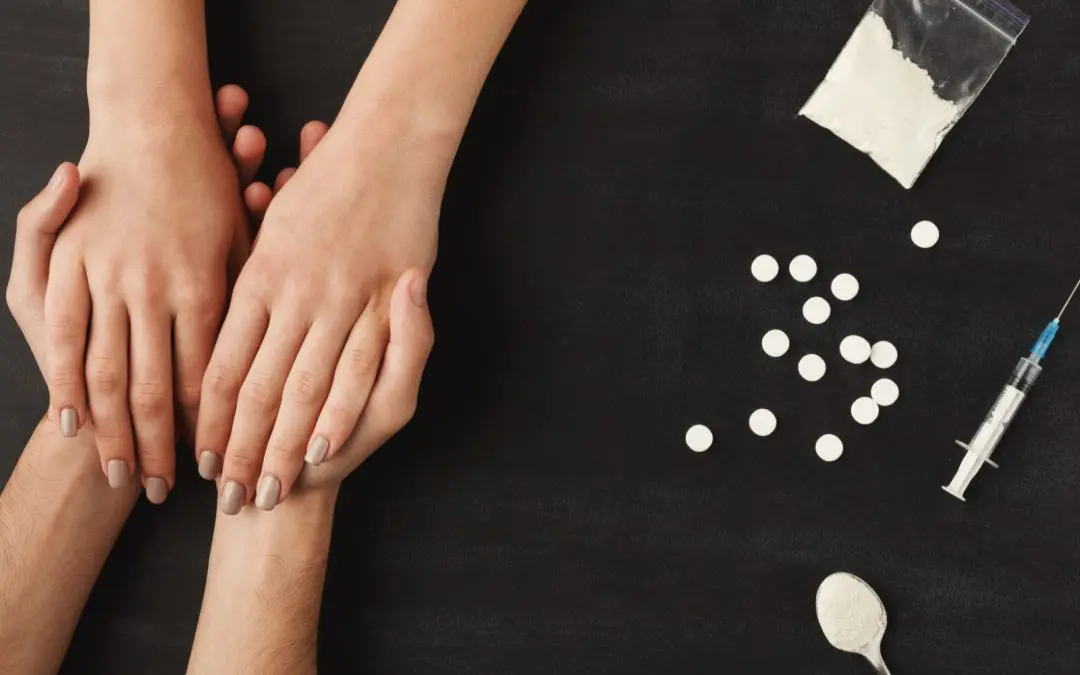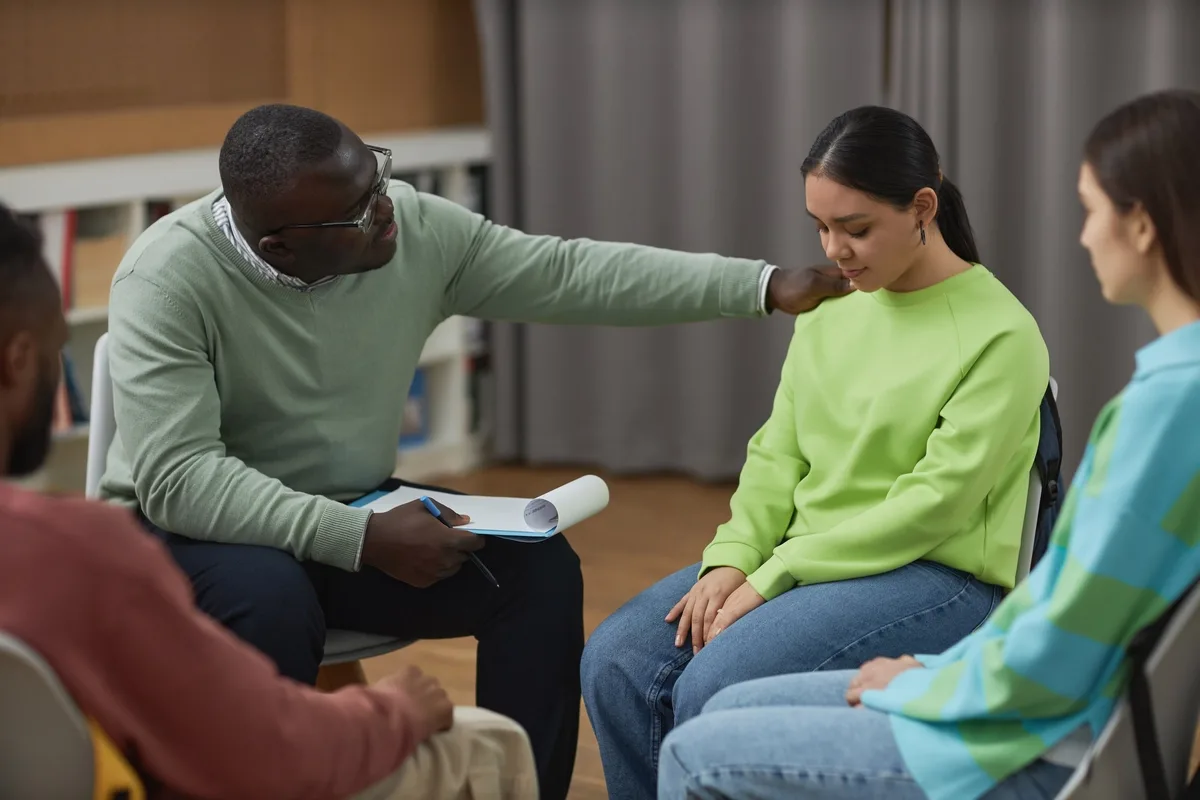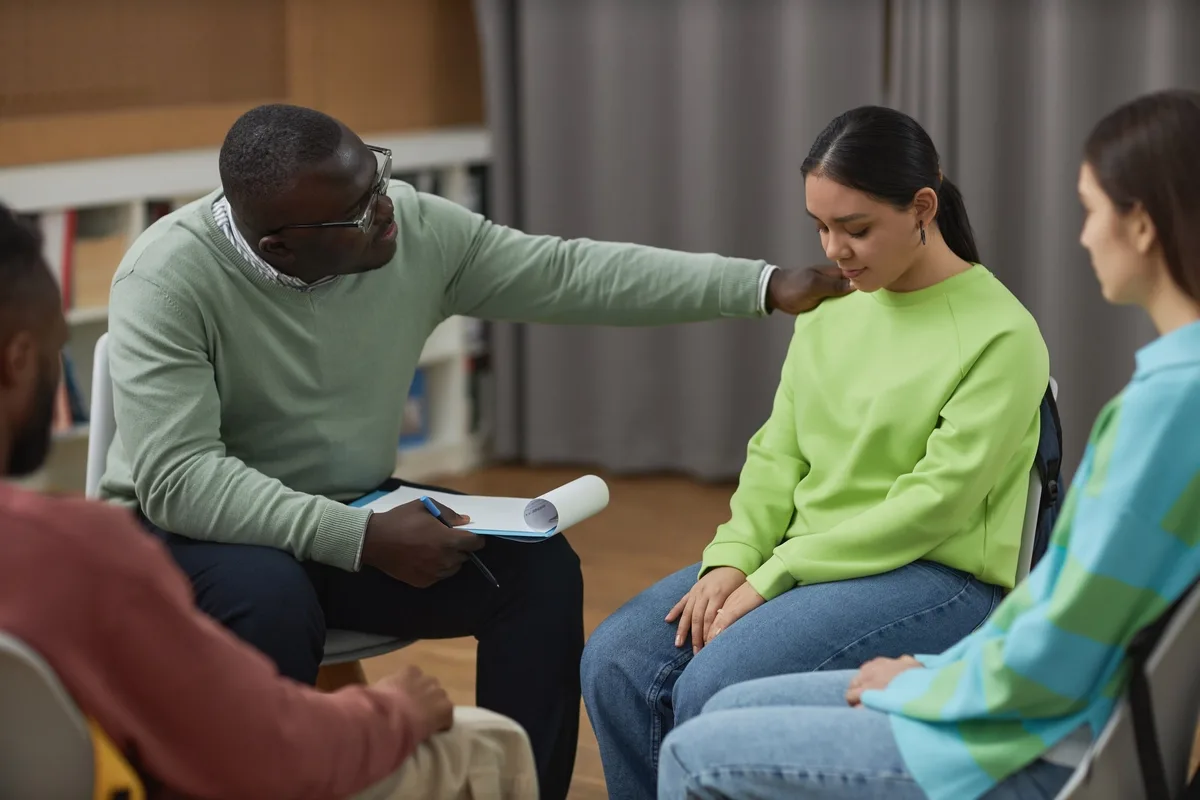24/7 Helpline:
(866) 899-221924/7 Helpline:
(866) 899-2219
Learn more about Individual Therapy centers in Mora
Individual Therapy in Other Cities

Other Insurance Options

CareFirst

Amerigroup

Holman Group

Kaiser Permanente

Sutter

Multiplan

Excellus

Choice Care Network

MVP Healthcare

BHS | Behavioral Health Systems

Optima

Oxford

Aetna

Magellan

Lucent

Magellan Health

ComPsych

Highmark

Providence

Access to Recovery (ATR) Voucher

Dellwood Recovery Center
Dellwood Recovery Center is a private rehab located in Mora, Minnesota. Dellwood Recovery Center spe...

Serenity Manor
Serenity Manor is a private rehab located in Mora, Minnesota. Serenity Manor specializes in the trea...

New Mexico Behavioral Health
New Mexico Behavioral Health is a public rehab located in Mora, New Mexico. New Mexico Behavioral He...




Edgefield Recovery Center
Edgefield Recovery Center is a drug and alcohol rehab center located in Cheneyville, LA. They provid...

Healing Springs Ranch
Located in Tioga, Texas, Healing Springs Ranch is a center for treating addiction and mental health ...






























































































































































































































































































































































































































